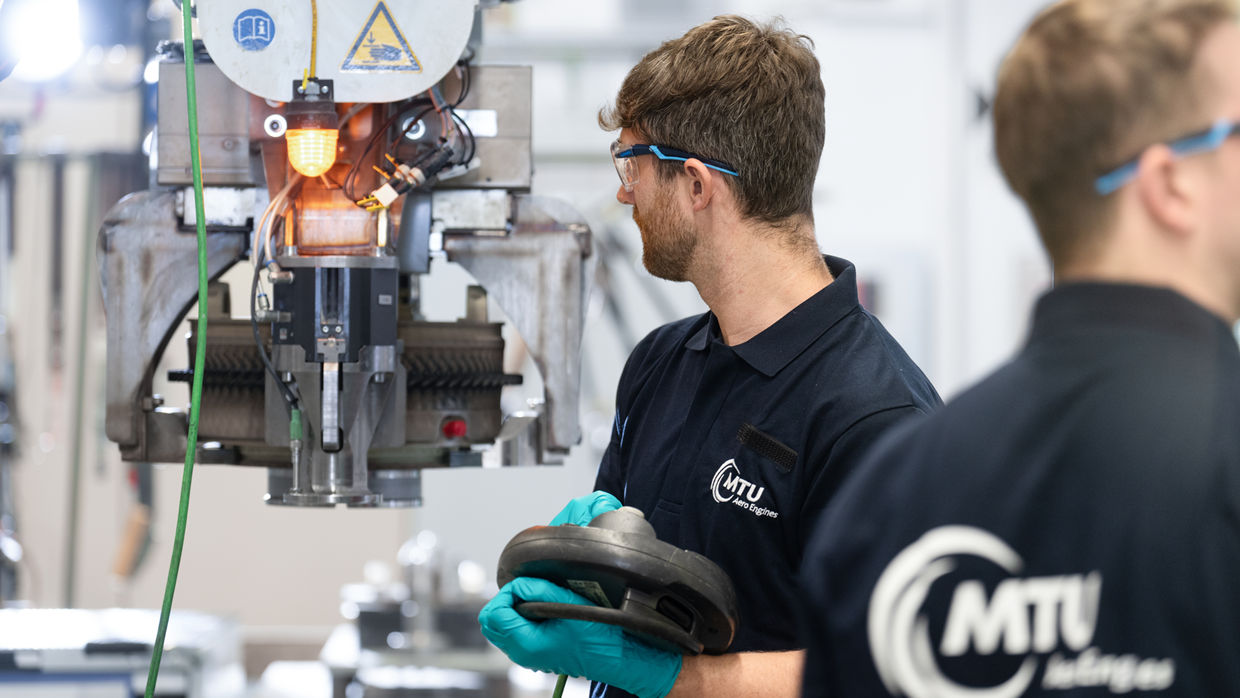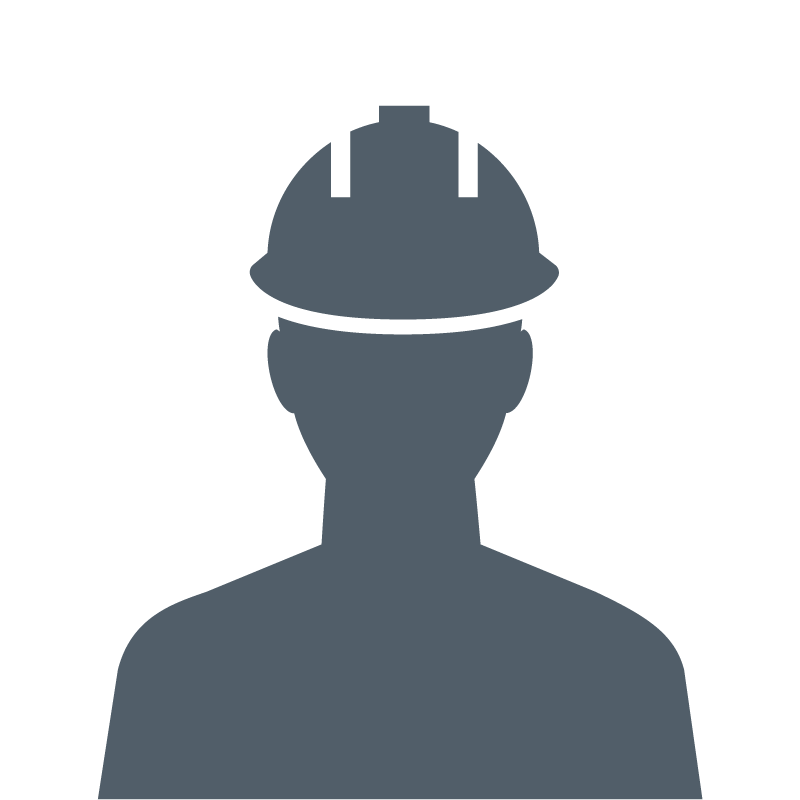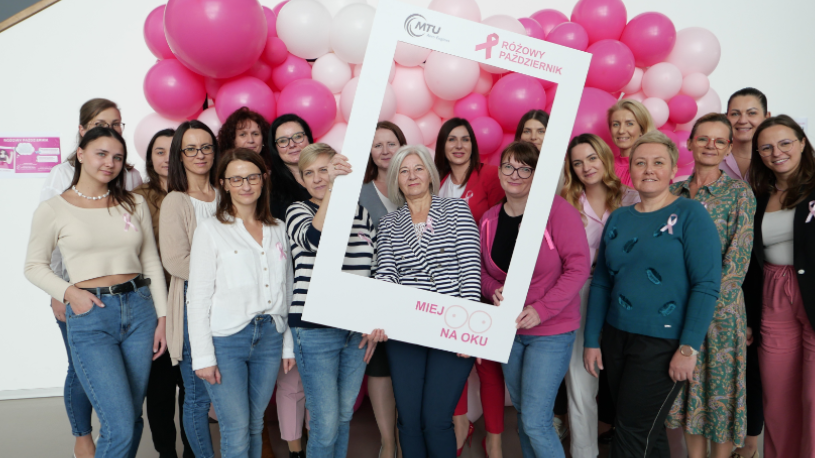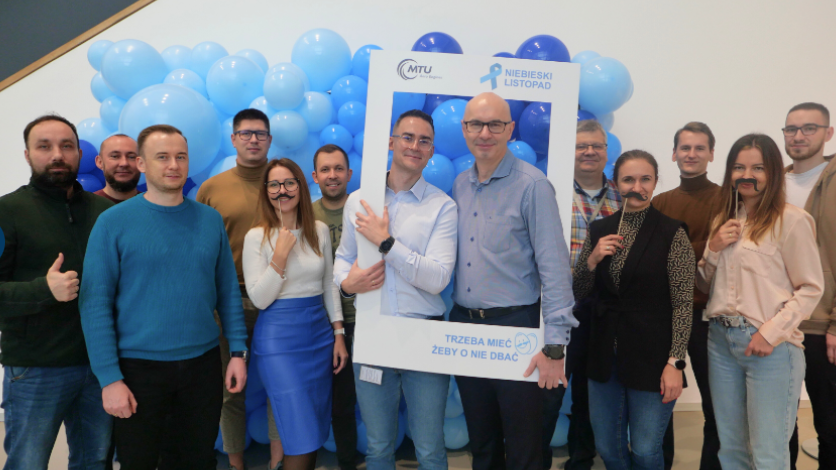Employees
Occupational health and safety
At MTU, our employees should have a safe and healthy environment in which to work. This is in line with our social responsibility and is expressed in strict occupational safety standards, company health management, and a preventive approach.

MTU places great importance on the safety of its employees. Their occupational health and safety is thus anchored in the Policy Statement on the Protection of Human Rights: “The health of our employees is a top priority for MTU.” The Policy Statement also stipulates that workplaces must be set up in accordance with statutory and generally recognized occupational health and safety regulations. In addition, we have established an internal standard that lays down parameters, rules, and KPI definitions applicable across all sites. A Group report on workplace accidents is submitted to the Executive Board each quarter. Our occupational safety approach is not centralized; local implementation addresses the requirements at each site. At the individual production sites, occupational safety is the responsibility of the site managers; occupational safety officers are appointed at the management level. Local technical departments take action on occupational safety issues on site and report regularly to site management. The workforce at the company’s production sites in Germany, Poland, and Canada is represented in locally organized occupational safety committees, the composition of which includes employee representatives.
Occupational safety forms part of our integrated management system (IMS) policy and is regularly reviewed and improved. At the European production sites, workplace regulations that are mandatory for all employees contain important safety rules pertaining to accident prevention, fire protection and what to do in the event of workplace or commuting accidents.
Certified occupational safety management
The occupational safety management systems in place at the German sites are certified externally in accordance with the ISO 45001 international standard for occupational health and safety management systems. → MTU’s current certifications. All workspaces in the company are part of our IMS based on the principle that “safety takes priority in what we do.” This includes the workspaces occupied by temporary workers, who are included in occupational safety measures in the same way as permanent employees. A management system based on the ISO 45001 standard has been established at the new production site in Serbia.
We strive to prevent health and safety risks to our employees and third parties. Workplaces are regularly assessed for any risks and hazards they present for employees. If potential burdens or hazards are identified, we take measures to eliminate them or reduce them to a minimum.
With the aim of permanently reducing the number of accidents and reaching a level of safety that aspires to prevent any accidents whatsoever, the local occupational safety officers record all accidents according to uniform categories (categories 1–5, near miss to fatal accident) and investigate them together with the affected employees / temporary workers and their manager. Should the assessment reveal specific aspects pertaining to the cause of accidents, we will take further steps to increase safety precautions. In the same way, near misses are recorded and evaluated. We strongly encourage the workforce to report unsafe situations. Safety training at least once a year is mandatory for all employees throughout the Group; for production employees, it is sometimes held monthly. We train all employees and temporary workers on health and safety matters when they first start working at MTU. In addition, managers receive repeated mandatory training on occupational safety. First-aiders are appointed and obligated to attend a refresher course every two years. Additional functions are fire safety assistants and safety officers. The local technical departments carry out ongoing prevention work at the company’s sites through training sessions or information campaigns.

lost-time accidents per 1,000 employees also mean a high level of safety at MTU for 2023. By comparison, the industry average was 30.4 accidents*.
*Category 4 accidents with more than 3 days lost, German metalworking industry, 2022 data
Accident-free and low-stress workspaces form part of our IMS policy. We define annual tolerance thresholds for workplace accidents at our production and maintenance sites. This cumulative value for lost-time accidents represents a tolerable accident rate at the site. The threshold ranged from 0 to 16 for 2023, depending on the site, and was met at three of six sites. For the MTU Group as a whole, 50 lost-time accidents (category 3 and 4 accidents involving at least one day lost, excluding commuting accidents) were recorded in the reporting year. This means that the number of accidents is down on the previous year’s figure of 63; this is primarily due to a sharp decline at the Munich site from 23 accidents in the previous year to 11 in the reporting year. As a result, the Group-wide accident rate per 1,000 employees also improved from 5.4 in 2022 to 4.0 in the reporting period. The accident rate is thus low overall and below the industry average for the German metalworking industry (30.4 accidents per 1,000 employees for reportable accidents entailing more than three days lost [category 4], as recorded by Wood and Metal Trade Association—BG Holz und Metall in the data for 2022). In contrast, the total number of days lost increased to 676 days in 2023 due to the occurrence of isolated accidents with long periods of lost time. As in previous years, there were no fatal workplace accidents.
|
Workplace accidents and days lost GRI 403-9 |
|||
|
|
2023 |
2022 |
2021 |
|
Workplace accidents with absence (categories 3 and 4) |
50 |
63 |
67 |
|
Fatal workplace accidents (category 5) |
0 |
0 |
0 |
|
Accident rate per 1,000 employees (categories 3 and 4) |
4.0 |
5.4 |
6.2 |
|
Days lost (after accidents categories 3 and 4) |
676 |
470 |
820 |
The accident statistics (excluding commuting accidents) relate to the total workforce, including trainees/apprentices, interns, school and university students, and employees on fixed-term contracts, as well as temporary workers. Contractor accidents are excluded. Workplace accidents during mobile working are recorded as soon as a work-related connection is made.
Prevention is paramount in occupational safety
Occupational health and safety is implemented on a site-specific basis: an overarching exchange between the technical departments promotes mutual learning and standardization within MTU. The occupational safety specialists on-site derive proactive measures from regularly updated risk assessments, routine inspections of workstations, and audits in production and administration. Findings from such analyses and from the evaluation of existing workstations are also used for the ergonomic and safe design of new workspaces.
All accidents are recorded and evaluated; the analyses of accidents show that, overall, MTU has a very high level of technical and organizational safety with regard to its machines and equipment. The accidents that do occur are frequently related to behavior and less so to the operation of machines and equipment. The measures were also aimed at promoting safety-oriented behavior and further developing the safety culture. One focus was on high standards in ergonomic workplace design, which is always considered during inspections and audits. In this regard, measures are implemented on a site-specific basis. Measures in 2023 included:
- Health day with occupational safety aspects (Munich, Hannover, Ludwigsfelde sites)
- Action day on hazardous substances and explosion protection, raising awareness of behavior on the site (Munich site as part of the Safety First campaign)
- Monthly inspections for cleanliness, order, and safety as well as monthly occupational safety and alarm instructions in the shop, instructions on occupational safety in the office area every quarter (Hannover site)
- Regular inspections for cleanliness, order, and safety as well as inspections of all areas by safety specialists, emergency drills in cleaning and electroplating (Ludwigsfelde site)
- Installation of safety mirrors in the toilets to remind employees of their own responsibility for safety at work, launch of the “Go home safe” awareness campaign on safe behavior and wearing personal protective equipment (Nova Pazova site)
- Launch of the “Safety starts with us!” campaign with workshops on safety culture, special training courses, e.g. for forklift drivers, and posters showing safe work steps, as well as new laser safety markings on forklifts and component cranes (Rzeszów site)
Health management at the company
Health management includes a service at the German sites that covers occupational health and—at sites with a company doctor—emergency medicine and is responsible for general preventive measures. This service is available to all employees and temporary workers.
|
Health rate |
|||
|
|
2023 |
2022 |
2021 |
|
Germany |
94.2% |
93.5% |
94.9% |
Counseling services offer employees and temporary workers support with maintaining their overall work performance as well as for mental health issues. In addition, all of our German sites offer supplementary in-house and external services. This includes in-house case managers, who provide advice for employees returning to work following a long absence, as a result of sickness or an accident for instance, to ensure that they get the best possible support with their reintegration. External providers offer a comprehensive support package for family-related matters. Additional benefits offered by MTU include fitness centers, which are run either in-house or by external partners, as well as on-site physiotherapy and ergonomics training.
New offerings at the Polish site


The new health offerings at the Rzeszów site—Pink October and Blue November—were well received by employees. The campaign days served to raise awareness for regular cancer prevention combined with specific offers for on-site screening.
Our employees outside of Germany can also take advantage of permanent health services. In Vancouver, Canada, employees have access to programs for either short-term or long-term disability in the event that they need a longer period of time to recover from an illness. MTU Aero Engines North America supports its employees by offering, for example, health insurance policies for short- or long-term disability or individual workplace reintegration after a long period off work. At our site in Rzeszów, Poland, the basic medical services on offer include a doctor who is on-site once a week as well as psychological support as needed. In addition, the “Together for Health” online project was continued with various webinars in 2023.
Pink October and Blue November were the first health campaigns for employees at the MTU Aero Engines Polska site. They included health checks (blood tests, mammograms) for cancer in women (Pink October) and blood tests for cancer prevention in men (Blue November). Both campaigns also set out to raise awareness of regular health checks for men and women.
If employees experience financial hardship as a result of personal illness or illness in the family, they can draw on assistance from MTU’s social fund, which pools funds from managers, the Executive Board, and the Supervisory Board. The social fund is open to all Group employees.
